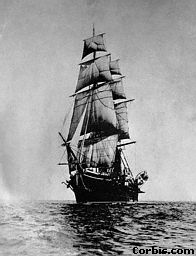 Many loose ends are tied up in the last few pages of the novel. At the core is the resolution of nature vs. nurture. The creature, standing over his creator's dead body, states that "My heart was fashioned to be susceptible of love and sympathy; and when wrenched by misery to vice and hatred, it did not endure the violence of the change, without torture such as you cannot even imagine," (Shelley, 164). The creature here brings to light Shelley's point that the true tendencies of man are innate. She is saying that every part of creation is fashioned with a capability for love, and it is only by experiencing the miseries of life the people resort to the cruelty and brutality displayed by both the creature and Victor. We are good beings by nature, and nurtured through our path of life.
Many loose ends are tied up in the last few pages of the novel. At the core is the resolution of nature vs. nurture. The creature, standing over his creator's dead body, states that "My heart was fashioned to be susceptible of love and sympathy; and when wrenched by misery to vice and hatred, it did not endure the violence of the change, without torture such as you cannot even imagine," (Shelley, 164). The creature here brings to light Shelley's point that the true tendencies of man are innate. She is saying that every part of creation is fashioned with a capability for love, and it is only by experiencing the miseries of life the people resort to the cruelty and brutality displayed by both the creature and Victor. We are good beings by nature, and nurtured through our path of life.Another important point in the story is Walton's decision to return to England. I think his return is a direct result of the demise of Victor. As he witnesses the fall of the man so driven by things similar to him, he becomes fearful, whether consciously or not, and turns away from this path before it destroys him too.











































